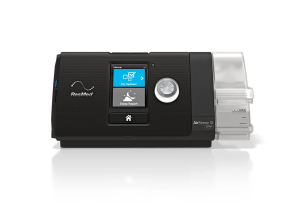San Diego, California-based medical equipment company ResMed recently announced that it is bringing a new manufacturing facility online to meet demand for sleep apnea devices. ResMed is the largest manufacturer of CPAP and bilevel positive airway pressure devices by market share.
The company opened a new manufacturing hub in Singapore in November, which ResMed CEO Mick Farrell said has the capacity to meet all of the market’s need for production of sleep apnea devices.
Meanwhile, ResMed’s main competitor, Philips Respironics, is struggling to complete a massive recall of its own devices, and pandemic-related chip shortages are slowing production for all companies in the market.
“We see that [chip shortage] as a humanitarian emergency and we’re doing everything we can to source more and more semiconductor chips, and we’re having some good success,” said Farrell at the 41st annual J.P. Morgan Healthcare Conference, which took place from January 9-12 in San Francisco.
In some parts of the world, wait times for the devices after a diagnosis are currently eight to 12 weeks, Farrell added.
“Can you imagine, you’ve got a really important new condition but we’ll see you in three months? It’s just wrong,” However, “every month and every quarter,” ResMed gets closer to meeting that demand, Farrell added.
Supply chains snarled by the pandemic, and increased demand for consumer electronics, have made semiconductor chips particularly hard to find in the last two to three years for many companies.
Although ResMed had multi-year agreements with semiconductor manufacturers, some suppliers failed to honor their commitments and instead used their capacity to fulfill other orders, according to ResMed President and COO Rob Douglas. The fact that ResMed primarily competes with the auto industry for the chips it needs only exacerbated the problem for the company.
But thankfully for ResMed, “That seems to have settled down,” Douglas added.
In December, Philips Respironics said it expected to finish production for 90% of replacement devices by the end of the year, but it’s still unclear when the company will re-enter the market.
Regardless, Farrell does not seem worried about that eventuality. “I don’t know when they will be back. Neither of those matter because they’ve got to start from zero share of new patients and work their way back in, and the number two, three, and four players have taken some of that sort of second-tier play, and they will go and fight for that share at the start,” Farrell said.























